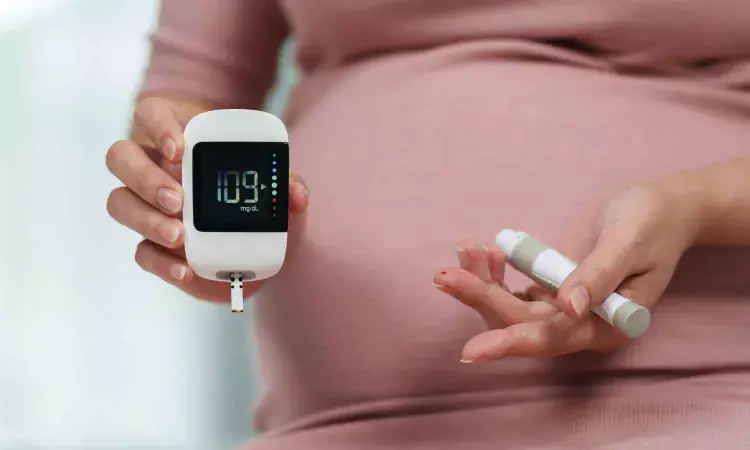- Home
- Medical news & Guidelines
- Anesthesiology
- Cardiology and CTVS
- Critical Care
- Dentistry
- Dermatology
- Diabetes and Endocrinology
- ENT
- Gastroenterology
- Medicine
- Nephrology
- Neurology
- Obstretics-Gynaecology
- Oncology
- Ophthalmology
- Orthopaedics
- Pediatrics-Neonatology
- Psychiatry
- Pulmonology
- Radiology
- Surgery
- Urology
- Laboratory Medicine
- Diet
- Nursing
- Paramedical
- Physiotherapy
- Health news
- Fact Check
- Bone Health Fact Check
- Brain Health Fact Check
- Cancer Related Fact Check
- Child Care Fact Check
- Dental and oral health fact check
- Diabetes and metabolic health fact check
- Diet and Nutrition Fact Check
- Eye and ENT Care Fact Check
- Fitness fact check
- Gut health fact check
- Heart health fact check
- Kidney health fact check
- Medical education fact check
- Men's health fact check
- Respiratory fact check
- Skin and hair care fact check
- Vaccine and Immunization fact check
- Women's health fact check
- AYUSH
- State News
- Andaman and Nicobar Islands
- Andhra Pradesh
- Arunachal Pradesh
- Assam
- Bihar
- Chandigarh
- Chattisgarh
- Dadra and Nagar Haveli
- Daman and Diu
- Delhi
- Goa
- Gujarat
- Haryana
- Himachal Pradesh
- Jammu & Kashmir
- Jharkhand
- Karnataka
- Kerala
- Ladakh
- Lakshadweep
- Madhya Pradesh
- Maharashtra
- Manipur
- Meghalaya
- Mizoram
- Nagaland
- Odisha
- Puducherry
- Punjab
- Rajasthan
- Sikkim
- Tamil Nadu
- Telangana
- Tripura
- Uttar Pradesh
- Uttrakhand
- West Bengal
- Medical Education
- Industry
Gestational Diabetes Linked to Persistent Platelet Hyperreactivity and Long-Term Cardiovascular Risk: Study

Italy: A recent study published in the American Journal of Obstetrics & Gynecology highlights a link between gestational diabetes mellitus (GDM) and platelet hyperreactivity persisting up to two months postpartum, which could increase the risk of long-term complications. The findings suggest that this condition may serve as a therapeutic target, potentially addressed through low-dose aspirin or other antiplatelet agents.
Gestational diabetes mellitus is linked to obstetrical and long-term cardiovascular complications, with platelet hyperresponsiveness playing a crucial role in such outcomes in type 2 diabetes mellitus. However, this aspect has been less explored in the context of GDM. To address this gap, Paolo Gresele, Division of Internal and Cardiovascular Medicine, Department of Medicine and Surgery, University of Perugia, Perugia, Italy, and colleagues aimed to evaluate platelet reactivity, in vivo platelet activation, and endothelial function in women with GDM compared to those with normal pregnancies.
For this purpose, the researchers conducted a prospective, case-control study involving 23 women with gestational diabetes mellitus and 23 healthy pregnant women. These participants were evaluated at 26 to 28 weeks, 34 to 36 weeks gestation, and 8 weeks postpartum. The assessments included platelet reactivity and in vivo platelet activation using light transmission aggregometry, PFA-100, platelet activation antigen expression, and platelet adhesion under flow. Additionally, platelet nitric oxide, reactive oxygen species production, and endothelial dysfunction markers were analyzed.
The study led to the following findings:
- The study revealed platelet hyperreactivity in women with gestational diabetes mellitus compared to healthy pregnant women, which increased further by the end of pregnancy and decreased two months postpartum but remained higher in GDM cases.
- In vivo, platelet activation was evident in GDM, particularly at the end of pregnancy, with partial persistence up to eight weeks postpartum.
- Women with GDM demonstrated defective platelet nitric oxide production and endothelial dysfunction compared to healthy pregnancies.
The findings revealed that compared to healthy pregnancies, women with GDM exhibited persistent platelet hyperreactivity, in vivo platelet activation, reduced nitric oxide production, and endothelial dysfunction.
"The study highlights that GDM induces a prothrombotic state primarily affecting platelets, which worsens during pregnancy and partially resolves after delivery but persists for up to two months postpartum. Platelet hyperreactivity may contribute to the long-term cardiovascular complications in women with GDM and represents a potential therapeutic target for future prospective studies," the researchers concluded.
Reference:
Guglielmini G, Falcinelli E, Piselli E, Mezzasoma AM, Tondi F, Alfonsi L, De Luca C, Fino V, Favilli A, Parrettini S, Minuz P, Torlone E, Gresele P, Gerli S. Gestational diabetes mellitus is associated with in vivo platelet activation and platelet hyperreactivity. Am J Obstet Gynecol. 2025 Jan;232(1):120.e1-120.e14. doi: 10.1016/j.ajog.2024.04.003. Epub 2024 Apr 4. PMID: 38582292.
Dr Kamal Kant Kohli-MBBS, DTCD- a chest specialist with more than 30 years of practice and a flair for writing clinical articles, Dr Kamal Kant Kohli joined Medical Dialogues as a Chief Editor of Medical News. Besides writing articles, as an editor, he proofreads and verifies all the medical content published on Medical Dialogues including those coming from journals, studies,medical conferences,guidelines etc. Email: drkohli@medicaldialogues.in. Contact no. 011-43720751


